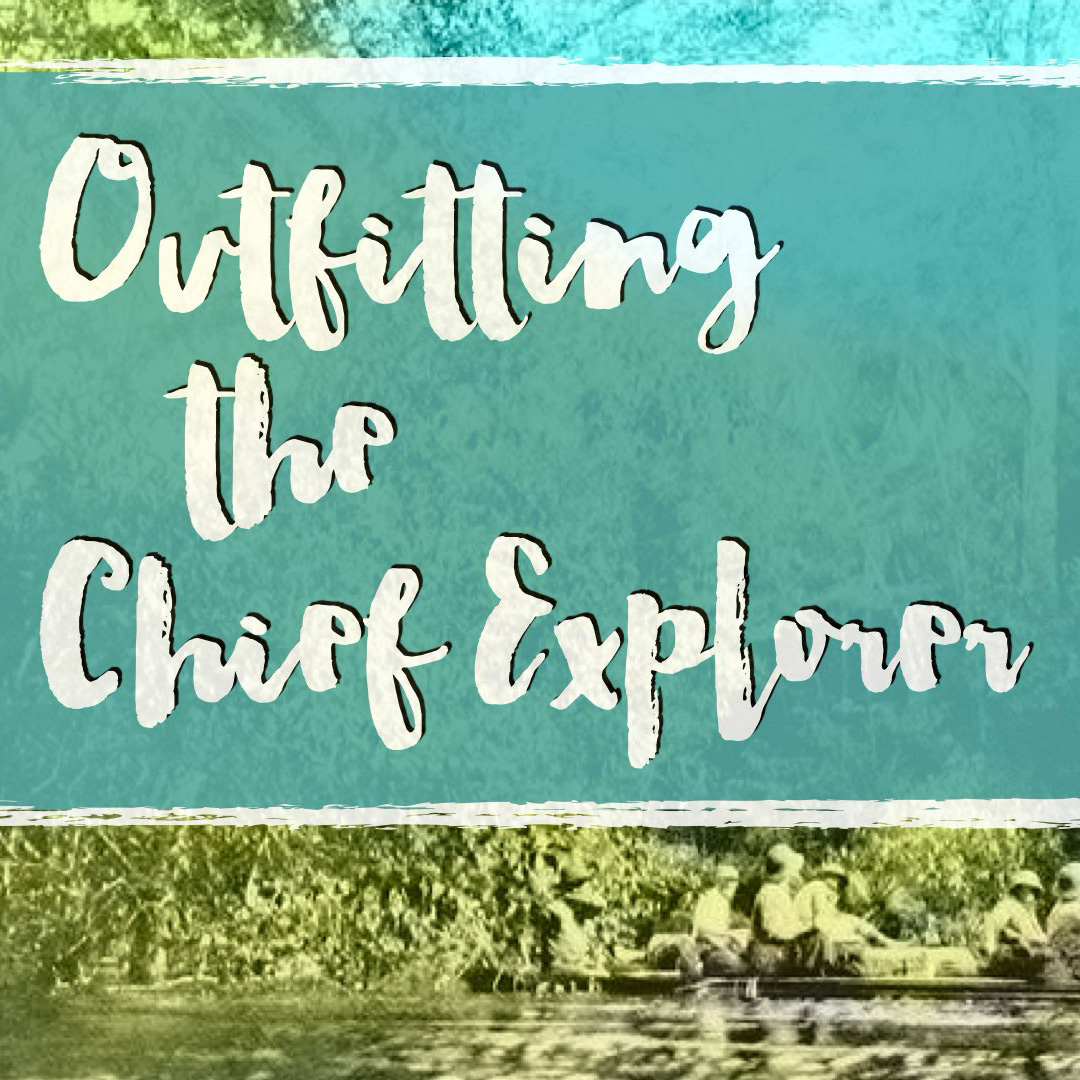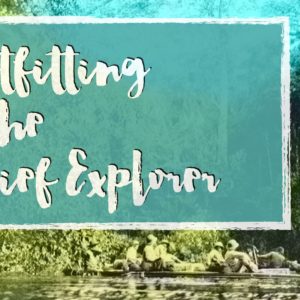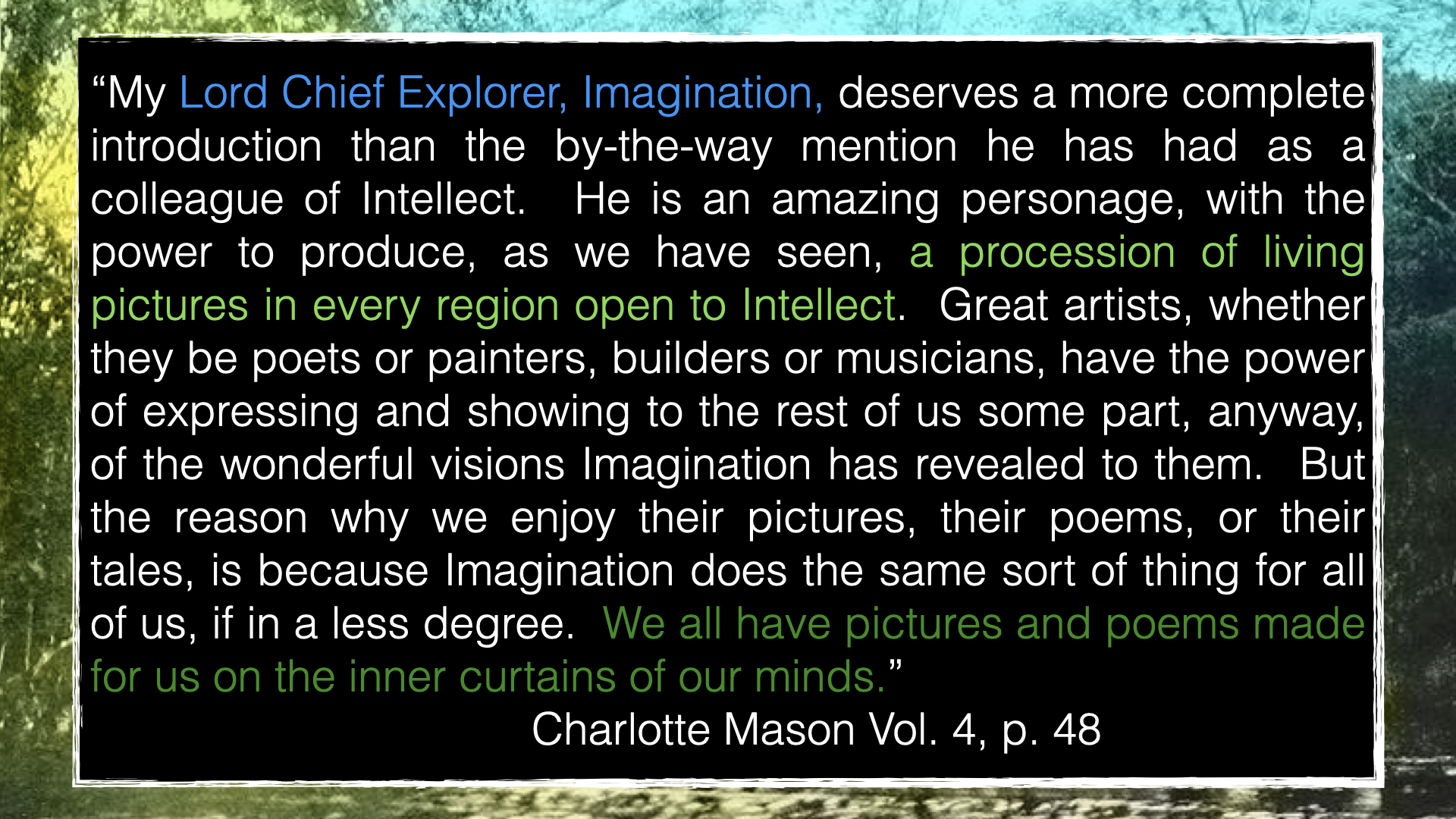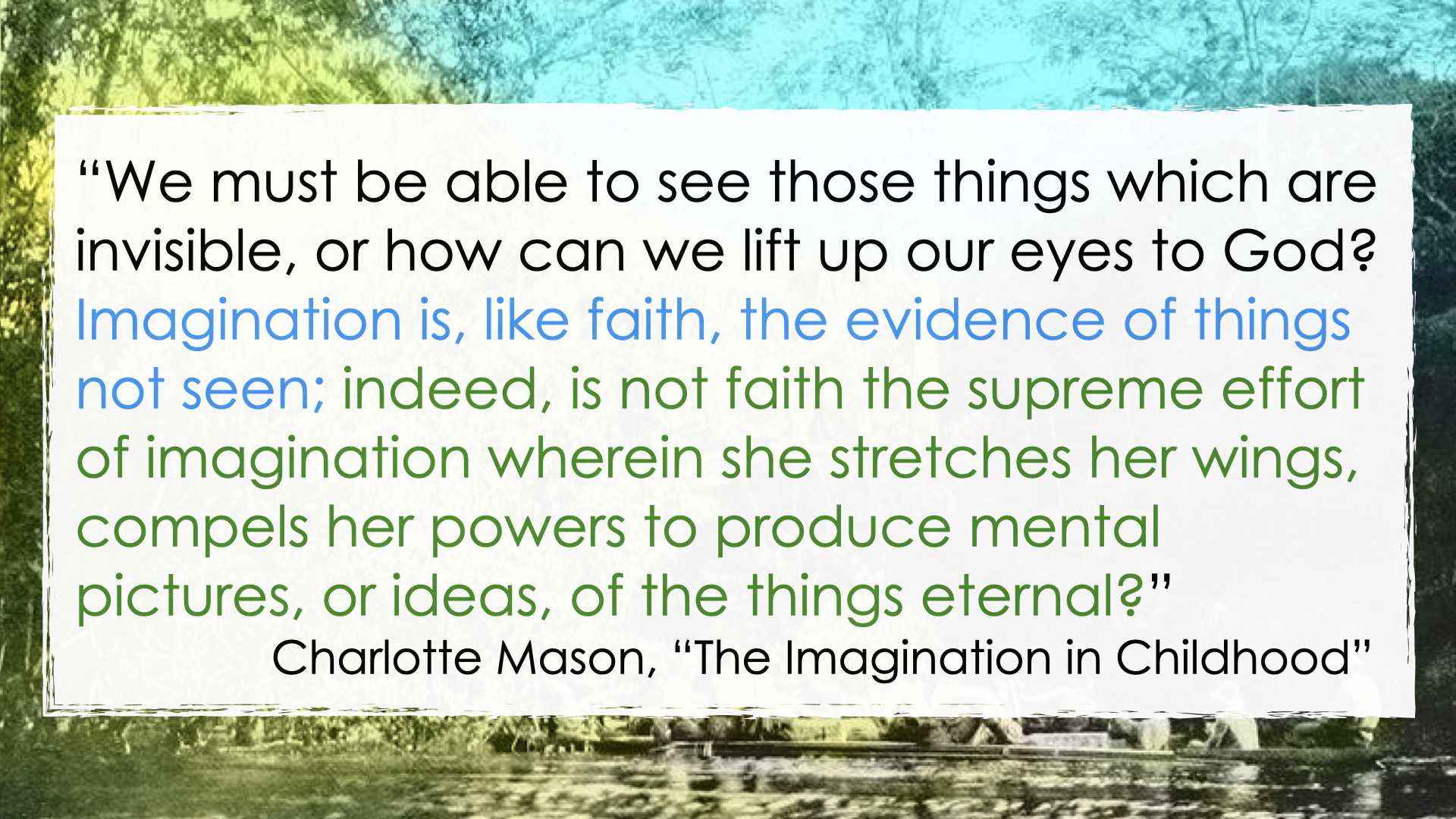
“My Lord Chief Explorer, Imagination, deserves a more complete introduction than the by-the-way mention he has had as a colleague of Intellect. He is an amazing personage, with the power to produce, as we have seen, a procession of living pictures in every region open to Intellect. Great artists, whether they be poets or painters, builders or musicians, have the power of expressing and showing to the rest of us some part, anyway, of the wonderful visions Imagination has revealed to them. But the reason why we enjoy their pictures, their poems, or their tales, is because Imagination does the same sort of thing for all of us, if in a less degree. We all have pictures and poems made for us on the inner curtains of our minds.”
Charlotte Mason, Vol. 4, p. 48
“Imagining is perhaps as close as humans get to creating something out of nothing the way God is said to.”
Frederich Buechner, “Whistling in the Dark” p 69
This year, I was honored to give the closing plenary at the Charlotte Mason Institute (CMI) Annual Conference. A few weeks later I was able to give the Outfitting talk at a workshop at the 2017 Living Education Retreat (LER). Once again, I am thrilled to be able to release this talk “into the wild” and hope that it might be an encouragement as you outfit your children for the life that is unfolding before them.
Taken from the talk description:
Let’s take some time to carefully examine the ways that Mason spoke of imagination in order to better understand her rich philosophy of education. How much truth is there in the commonly held belief that “some of us are creative and some are not”? What are Mason’s cautions to us regarding the development of imagination? How do we courageously take on the role of “Outfitter”, both for ourselves and for our students. In a culture where imagination takes its seat at the kids’ table, Mason tells us that it “grows by what it gets”, and therefore must be given its rightful place at The Feast.
Sorry the recording ends two minutes early. The closing was a simple circling back to the Kipling poem.
Resources:




